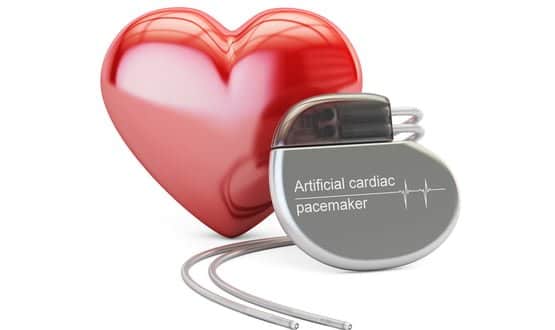Data from implantable devices to predict heart failure risk in Manchester

Health data from implantable devices like pacemakers and defibrillators will be collected in an attempt to better spot heart disease in Manchester.
The project will collate data from the devices of 1,000 heart failure patients in a bid to spot the signs of heart problems earlier and improve patient outcomes.
Greater Manchester has been allocated £338,000 from Health Data Research UK to use technology to detect signs of heart failure earlier.
The funding is part of £3 million of Government funding for innovative data solutions.
Health Innovation Manchester will be working with Manchester University NHS Trust, the University of Manchester and medical device company Medtronic to collect the data.
The new project builds on the existing heart failure and device service at the Manchester Heart Centre, at Manchester Royal Infirmary.
Dr Fozia Ahmed, clinical lead for the project and consultant cardiologist at the Trust, said: “This project looks at how we can potentially align the technology that sits within implanted devices to benefit the patient by identifying potential problems at an earlier timepoint.
“To date, seven out of ten patients were found to have issues that required treatment. By making better use of the patient data available we hope to radically improve the effectiveness and accuracy of patient care, ultimately improving care pathways.”
About 4,300 patients are admitted to hospitals in Manchester for heart failure each year, costing £17 million in treatment.
Jackie Fielding, vice president of UK and Ireland Medtronic, said: “TRIAGE HF and the Medtronic CareLink System have a high diagnostic accuracy to identify patients with worsening heart failure and are currently being used as a heart failure management tool at Manchester Royal Infirmary.
“By identifying patients at an earlier time-point it creates a window of opportunity in which to optimise heart failure therapies, and there is a strong signal that it could prevent a problem, such as worsening heart failure, from turning into a crisis resulting in an unplanned heart failure admission.
“Greater Manchester’s devolved healthcare system creates a unique opportunity to scale up digital health opportunities at pace to the benefit of the wider population. As our systems move towards a more sustainable, value based healthcare approach, it’s crucial that healthcare providers are reimbursed on outcomes that matter to patients and thus improve their quality of life.”





1 Comments
Great article each and every point is very well explained.
Today, in the world of Healthcare and Information Technology there are a huge number of small companies that are entering the competition, now — as a matter of fact, these so called ‘small healthcare technology companies’ have been much more successful than these large non-industry-specific technology companies and specifically in addressing the the issues related to the industry-specific needs of healthcare.
In the years leading up until this present day, there are many examples around us where we saw that the large and the better known technology organizations — those that had invested in the Health Information Technology market with high expectations ended up hitting up bad values such as low sales, low revenues, negative investment returns that displayed their inablility to capture the right mindset required to take a lead in this market. These large organizations, with the help of the newly integrated technology industry began to build the so called Healthcare Solutions and began selling them, in the present day there are many companies that provide Custom Healthcare Solutions which are totally customized to the clients needs, this change is the change that brought in a new wave of clients than before, if you did want such software solutions, there were a defined set of them from which you had to choose, there was no way to provide better features even if you wanted to this all changed with the aid of HIT. https://bit.ly/2GhBUOX
Comments are closed.